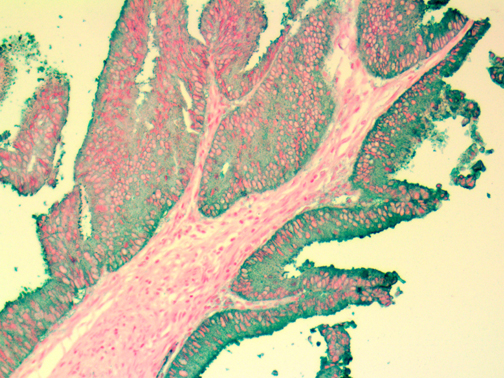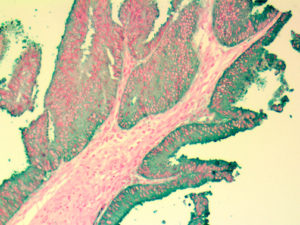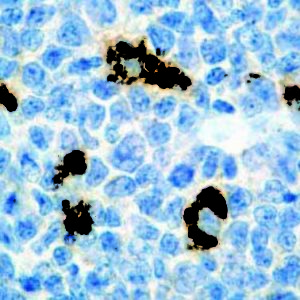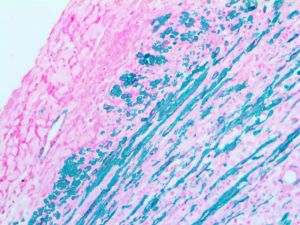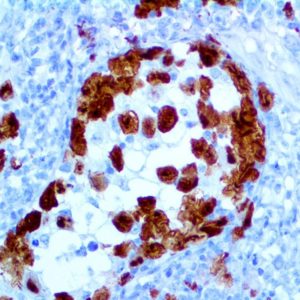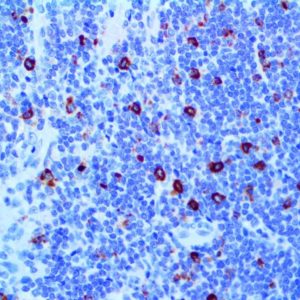| Intended Use | For In Vitro Diagnostic Use | |||||||||||||||||||||||||||||||||||
| Summary and Explanation | Carcinoembryonic antigen (CEA) is a glycoprotein involved in cell adhesion. It is normally produced during fetal development, but the production of CEA stops before birth. Therefore, it is not usually present in the blood of healthy adults, although levels are raised in heavy smokers. CEA is synthesized during development in the fetal gut, and is re-expressed in increased amounts in Intestinal Carcinomas and several other tumors. CEA is employed essentially as a tool to assist in the distinction between Adenocarcinoma and Malignant Mesotheliomas of the epithelial type, along with other markers for mucosubstances such as Leu M1 and Ber-EP4. Another suggested use of CEA is the immunophenotyping of various Metastatic Adenocarcinomas as a means of identifying their origin. | |||||||||||||||||||||||||||||||||||
| Antibody Type | Mouse Monoclonal | Clone | BSB-13 | |||||||||||||||||||||||||||||||||
| Isotype | IgG1/K | Reactivity | Paraffin, Frozen | |||||||||||||||||||||||||||||||||
| Localization | Cytoplasmic | Control | Colon, Colon Adenocarcinoma | |||||||||||||||||||||||||||||||||
| Presentation | Carcinoembryonic Antigen is a mouse monoclonal antibody derived from cell culture supernatant that is concentrated, dialyzed, filter sterilized and diluted in buffer pH 7.5, containing BSA and sodium azide as a preservative. | |||||||||||||||||||||||||||||||||||
| Availability |
| |||||||||||||||||||||||||||||||||||
| Note: For concentrated antibodies, please centrifuge prior to use to ensure recovery of all product. | ||||||||||||||||||||||||||||||||||||
